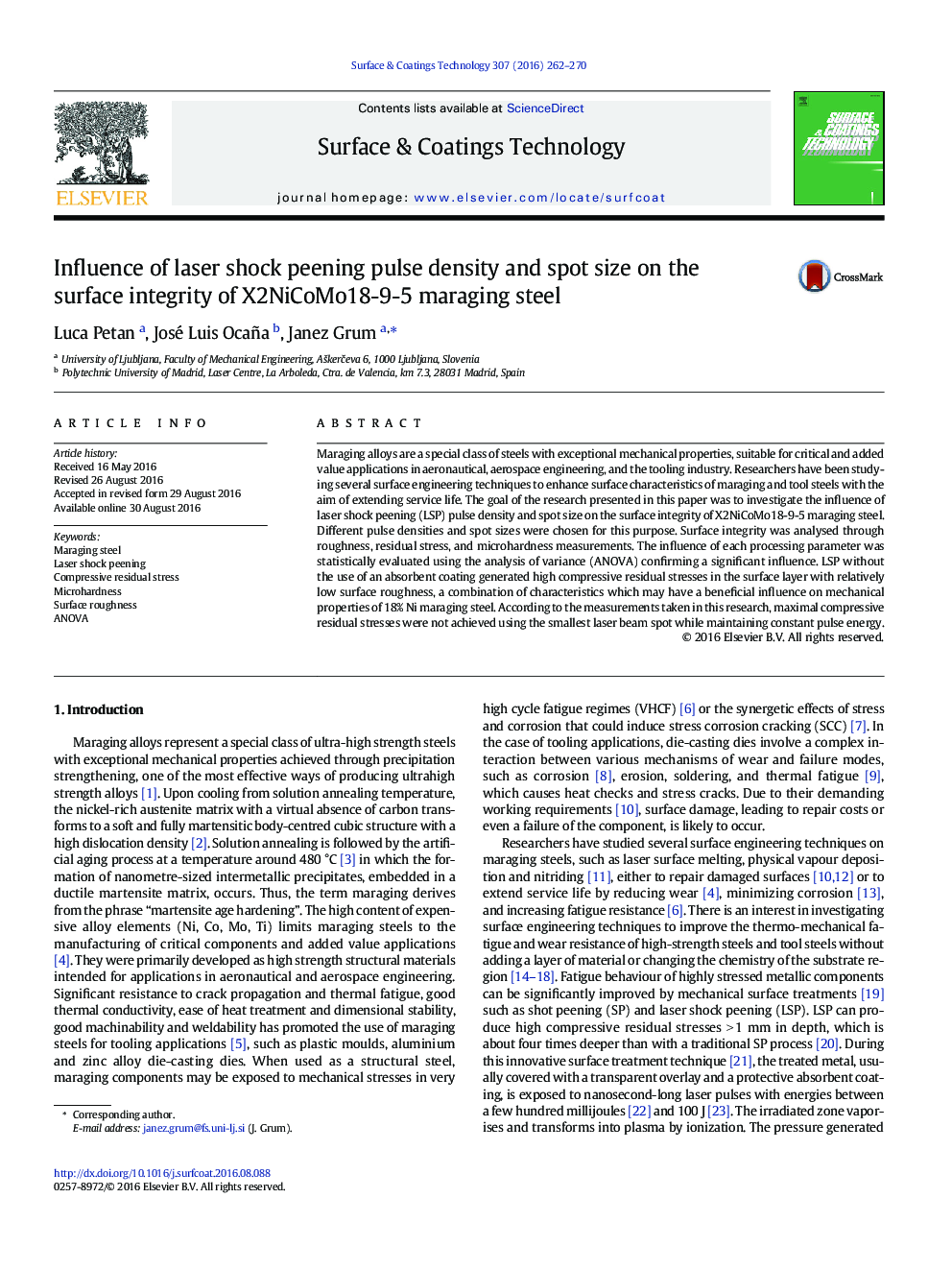| Article ID | Journal | Published Year | Pages | File Type |
|---|---|---|---|---|
| 6481432 | Surface and Coatings Technology | 2016 | 9 Pages |
â¢Maraging steel X2NiCoMo18-9-5 was treated with LSP.â¢ANOVA confirmed a significant influence of LSP pulse density and spot size.â¢LSP induced strain hardening and surface compressive RS of â 1000 MPa.â¢Maximal compressive RS were not achieved with the highest LSP power density.â¢Ra under 1 μm can be achieved without the use of an absorbent coating.
Maraging alloys are a special class of steels with exceptional mechanical properties, suitable for critical and added value applications in aeronautical, aerospace engineering, and the tooling industry. Researchers have been studying several surface engineering techniques to enhance surface characteristics of maraging and tool steels with the aim of extending service life. The goal of the research presented in this paper was to investigate the influence of laser shock peening (LSP) pulse density and spot size on the surface integrity of X2NiCoMo18-9-5 maraging steel. Different pulse densities and spot sizes were chosen for this purpose. Surface integrity was analysed through roughness, residual stress, and microhardness measurements. The influence of each processing parameter was statistically evaluated using the analysis of variance (ANOVA) confirming a significant influence. LSP without the use of an absorbent coating generated high compressive residual stresses in the surface layer with relatively low surface roughness, a combination of characteristics which may have a beneficial influence on mechanical properties of 18% Ni maraging steel. According to the measurements taken in this research, maximal compressive residual stresses were not achieved using the smallest laser beam spot while maintaining constant pulse energy.
